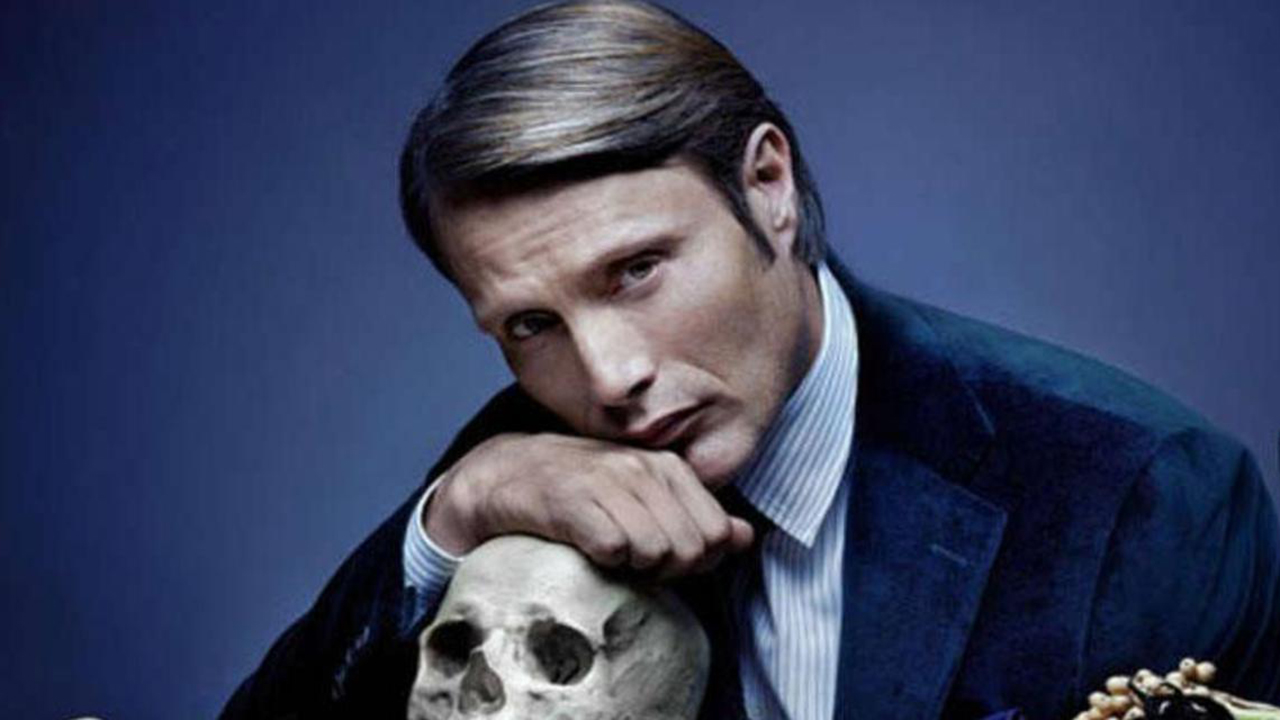Netflix recently cancelled another underappreciated ‘best sitcom ever’... and it’s (probably) your fault
Lady Dynamite is a warm, universally funny discussion of mental health and shared human weirdness by way of talking pugs. You should watch it.
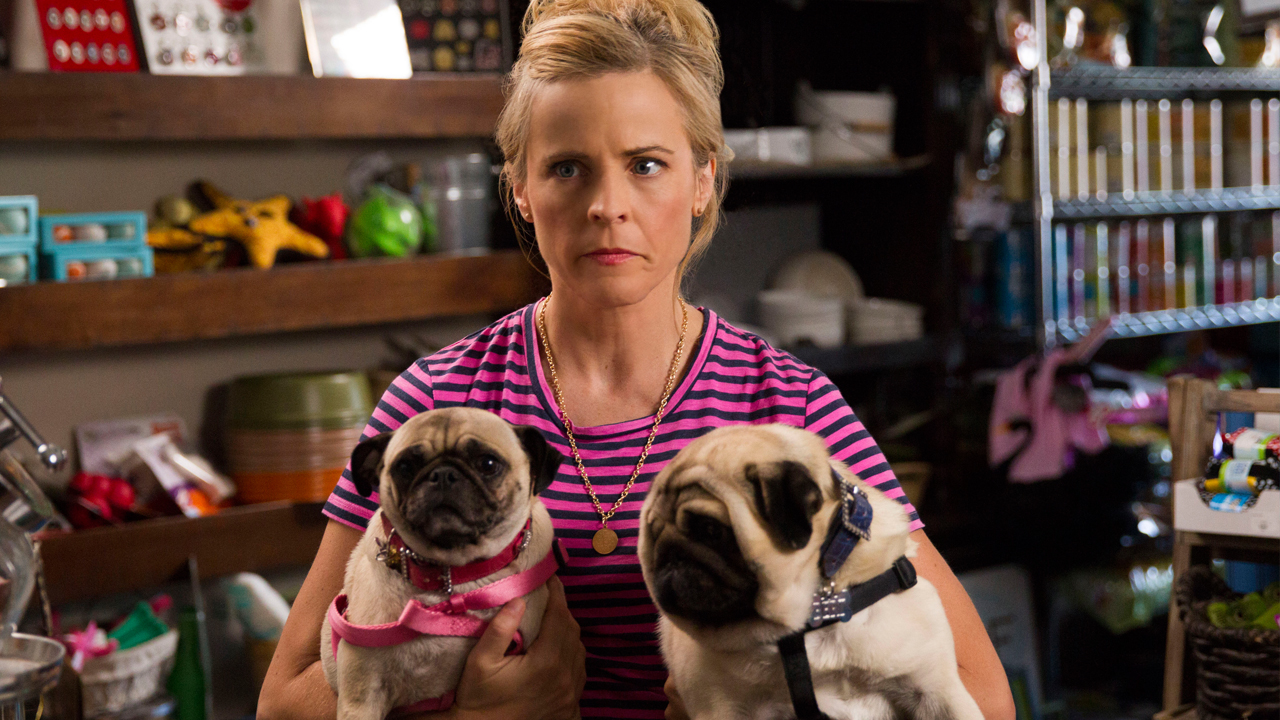
Hear ye, assemble and mourn, for alas it has happened again. Yes, friends, it has come time for another undeserving name to be nailed to the rotting, blood spattered monument to Amazing TV Shows Cancelled Before Their Time. And it is, once again, all your fault. Possibly. Either way, I implore you to gather for a moment, while I explain this latest great tragedy, struggling as I do to affix the name ‘Lady Dynamite’ beneath the likes of Hannibal, Firefly, Pushing Daisies, and Deadwood, my eyes once more blurred with tears.
Netflix comedy Lady Dynamite, you see, isn’t just good, fresh, brave, and a relentless purveyor of blindsiding, ‘Oh fuck help me I’m actually dying no really help me I’m serious’ laughter. It is all of those things, of course, but it is also a show with a ludicrous pedigree of comic talent behind it. It had producers responsible for Arrested Development and South Park. It had writers from Parks and Recreation. It had Oscar-winning and blockbuster-crafting directors, and guest stars covering the full gamut of Hollywood, TV, and stand-up, including two separate Supermans. And it got relentless critical plaudits, as it should have, because it was better than pretty much every other comedy that existed for the duration of its recently ended two-season run.
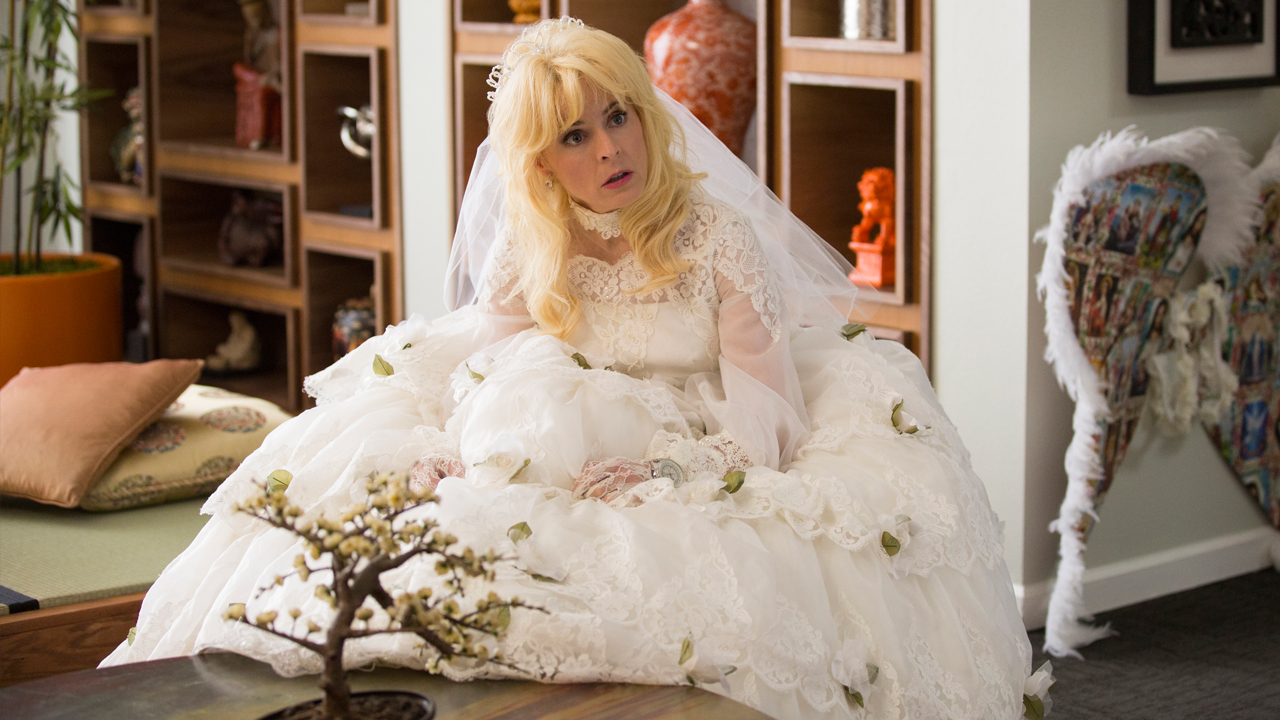
Despite all of the above, Lady Dynamite never seemed to generate huge audience chatter (at least based on anecdotal evidence around these parts), compared to the likes of similar recent left-field comedy hits like The Good Place. Statistically you’re probably responsible. I apologise for all the accusations, by the way. It’s not personal. It's just that Lady Dynamite was so damn good that the only way I can currently process its passing is by throwing blame at imaginary strangers on the internet. I'm not even blaming you, really. I'm blaming an imaginary you, crafted purely for cathartic purposes. Don't sweat it. It's all part of a process, and it'll pass.
Anyway, I’m going to try to rectify things now, but the same core challenge remains as the first time I tried and failed to make people watch the show. Namely, that Lady Dynamite is so blisteringly smart and different that it’s an unholy goddamn nightmare of a thing to accurately express the actual joy of.
A surreal, semi-autobiographical account of comedian and co-creator Maria Bamford’s life, from teenage years, to present day, to an increasingly satirical future (all related via intercut time periods whose events contrast with and feed into each other), its central conceit is her recovery from a nervous breakdown, and subsequent means of learning to navigate the world in a healthier fashion (as that world continues to be ridiculous, mental illness or not). Bamford herself has dealt with bi-polar disorder, OCD, depression, and anxiety, and admitted herself to hospital three times over 18 months from 2011. A version of that period, the immediate fallout, and her steady return to work and a new version of ‘normal’ life, is the catalyst for the first season and everything that follows.
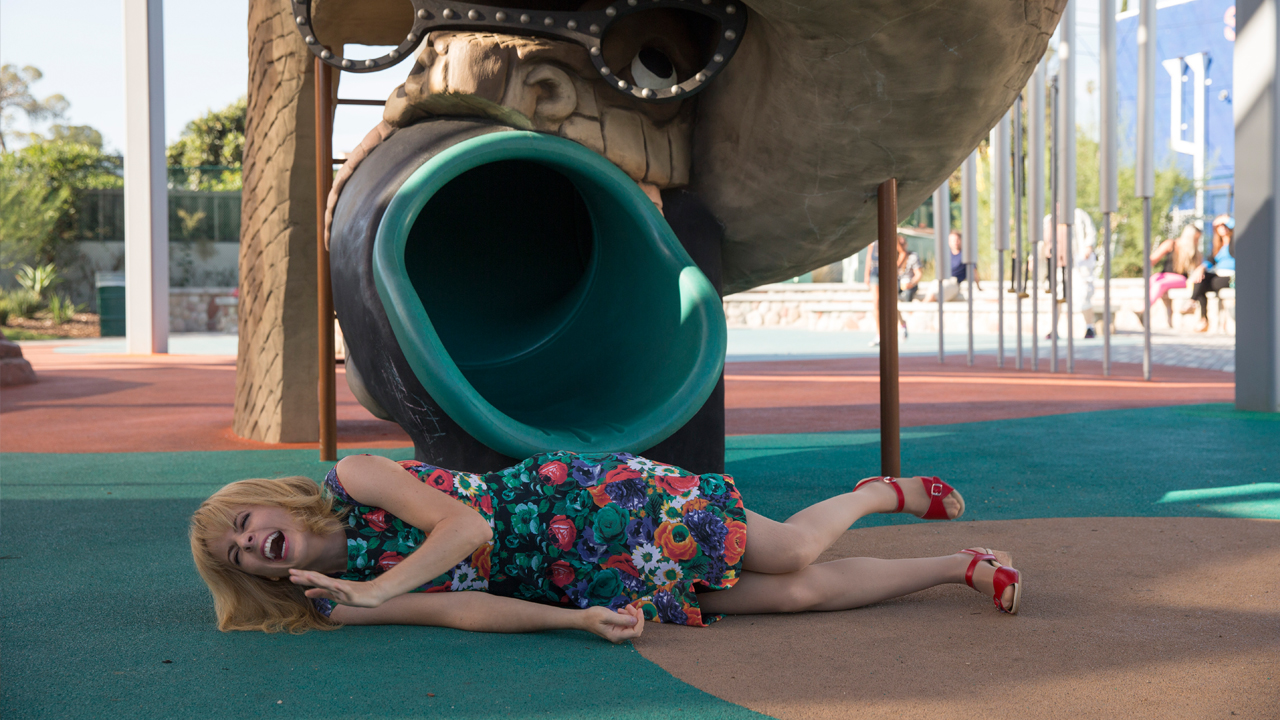
I'm now reading that last paragraph back, mentally comparing what it says to the last episode I watched, and I already know I'm fucking this up. But stick with me, we’ll get there. This will do all of us a lot of good.
The thing is, to explain what the show is technically about is to actually swerve clear of why it's really so good. I could talk about Maria’s well-meaning but tactless and overbearing parents, and the brilliant way the show contrasts the mother-daughter dynamic as it evolves (or doesn’t) between teenage years and adulthood. I could talk about her cluelessly sympathetic friends, their attempts to help crippled by poor understanding and frequent self-interest. I could mention the cartoonishly different versions of herself that Maria segues between (intentionally and otherwise) in order to handle different relationships and situations. Maybe I could bring up the blind-leading-the-blind interplay between Maria and her agent, a man who presents conspicuously rehearsed charm at all times, but is a writhing pit of anxiety underneath. But none of that would really help.
Sign up for the Total Film Newsletter
Bringing all the latest movie news, features, and reviews to your inbox
Because on paper, all of that perhaps makes Lady Dynamite sound like an overly earnest 'issue’ sitcom, the kind that juxtaposes conspicuous poignancy with deliberately sympathetic laughs to the end of award-baiting ‘serious comedy’. Coupled with all the conceptual weirdness I've hinted at, it possibly even sounds a bit self-consciously niche and exclusionary. But it’s nothing of the sort. Lady Dynamite is way better than that. It’s inviting, open-hearted, and endlessly, riotously silly in its Technicolor, goofball wisdom. And its strength, fundamentally, comes from Bamford’s wonderfully specific - but universal - voice.
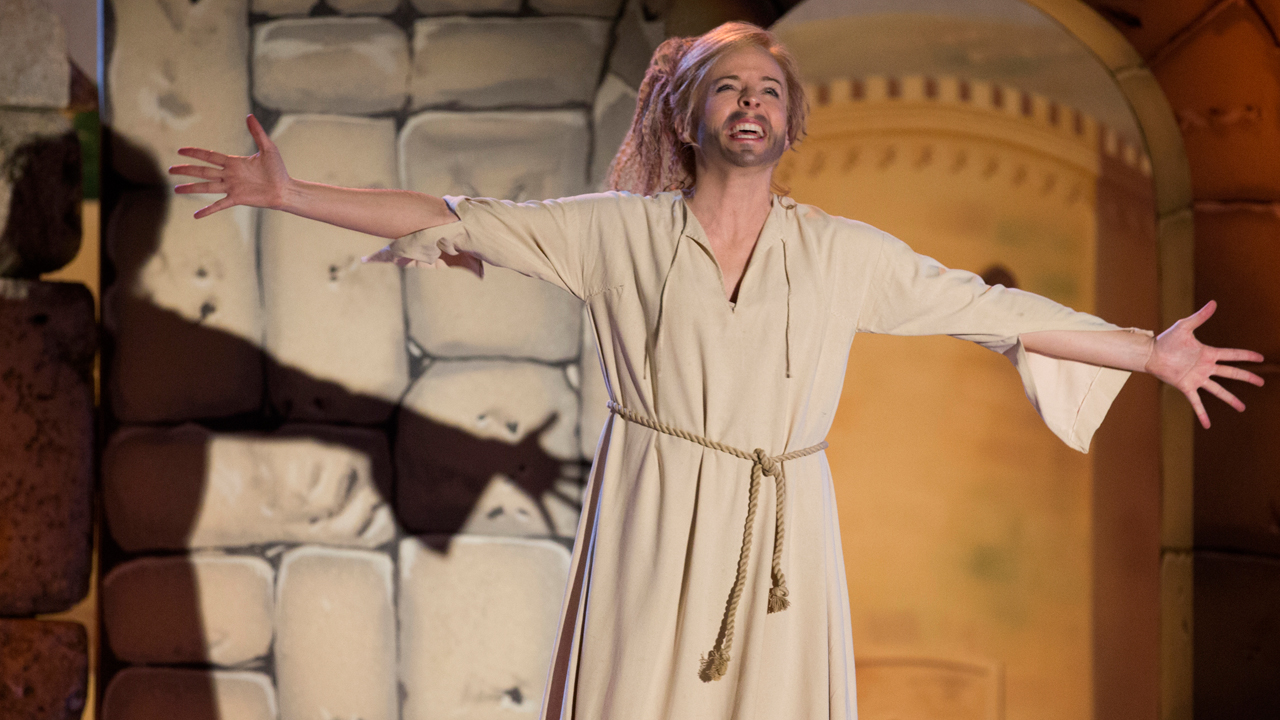
Lady Dynamite always looks out at the world from a gloriously subjective point of view, relating its storytelling as Bamford's almost stream-of-consciousness response to the world around her. And that's what makes Lady Dynamite so relatably warm, human, and accessible, however weird things get. In the total, unshielded honesty of Bamford’s constantly shifting, fun-house mirror reactions to the good-intentioned but dysfunctional people and reality she encounters, Lady Dynamite throws open the pure, shared weirdness of all humanity.
Her central performance is a persona of carefully layered chaos, as simultaneously clueless, naive, wise, and sharply aware as everyone really is on the inside, all at the same time. Lady Dynamite has no time for the notion that there's a right, aspirational way for humans to think and behave, or any final, complete state, and it's acutely aware that anyone presenting such a thing is faking it outrageously. So the show’s Maria is pure, unrestrained honesty, presenting all the intricate oddness, self-defeating thought processes, spontaneous, giddy tangents, and tenuously optimistic sense of self that runs through the mind of everyone, at all times.
The stark confusion, the rampant joy, and the many weird, inexplicable connections between the two. It’s all there and laid wide open with an ease and flow that few shows or artists ever muster. It's the weird, messy, triumphant, terrified, nonsensical, glorious inside of the human experience played on the outside, with total, unapologetic freedom. As such, Lady Dynamite is a show that normalises mental illness not by pointing and sagely explaining, but by normalising beautiful human chaos as an overall norm of existence.
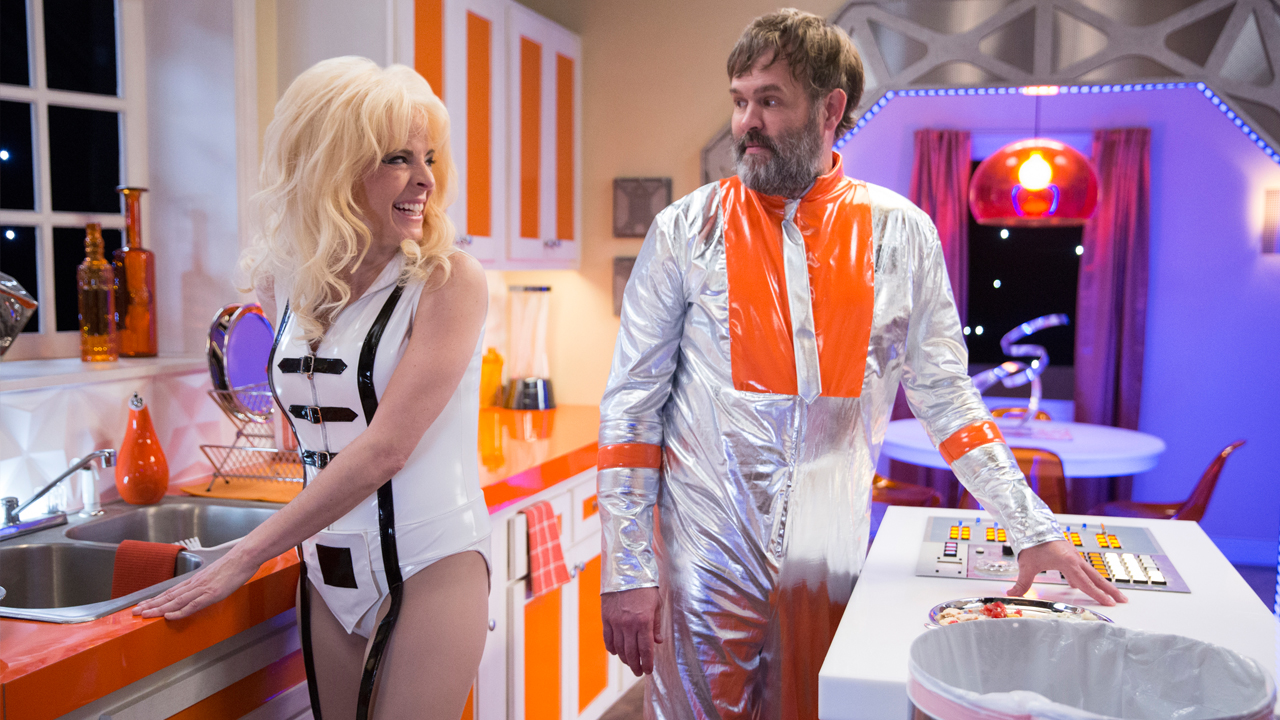
Even as talking pugs merge with garishly stylised fantasy sequences, and seemingly incoherent side-story sketches reveal their purpose as they melt into TV shows within TV shows within TV shows - Lady Dynamite frequently even questions itself, via further, fictional adaptations of its own fictional adaptation, as Maria’s story catches up with the making of the show - anyone who's honest with themselves about the true nature of being a human will recognise all of this.
It's currently a story without an official end, though perhaps, in a round-about fashion, it's better that way. Part of Lady Dynamite's philosophy has always professed that there is no real, idealised end point, no mythical win-condition for life. Everything's just part of a process of improvement, where sometimes embracing and accepting failure is as positive a step as any. And there’s a central message throughout that, whatever the world thinks you should want, it's always okay to quit if you've done enough and need something else. Perhaps a formal series finale would betray a great deal of that. I try to rationalise it that way for now, at least. But the truth is that for all the existential pondering to be had around Lady Dynamite, it’s also just one of the funniest shows I’ve ever seen, and I’m really going to miss it.
It’s galling that Lady Dynamite never seemed to get the promotional push it deserved. Maybe Netflix was nervous about another smart, weird sitcom from the producer of the brilliant but notoriously underwatched Arrested Development. God knows, I’ve come to associate that cheery Hurwitz Company banjo riff with nothing but death and desolation these days, so perhaps the jingle also instilled the show’s distributor with The Fear.
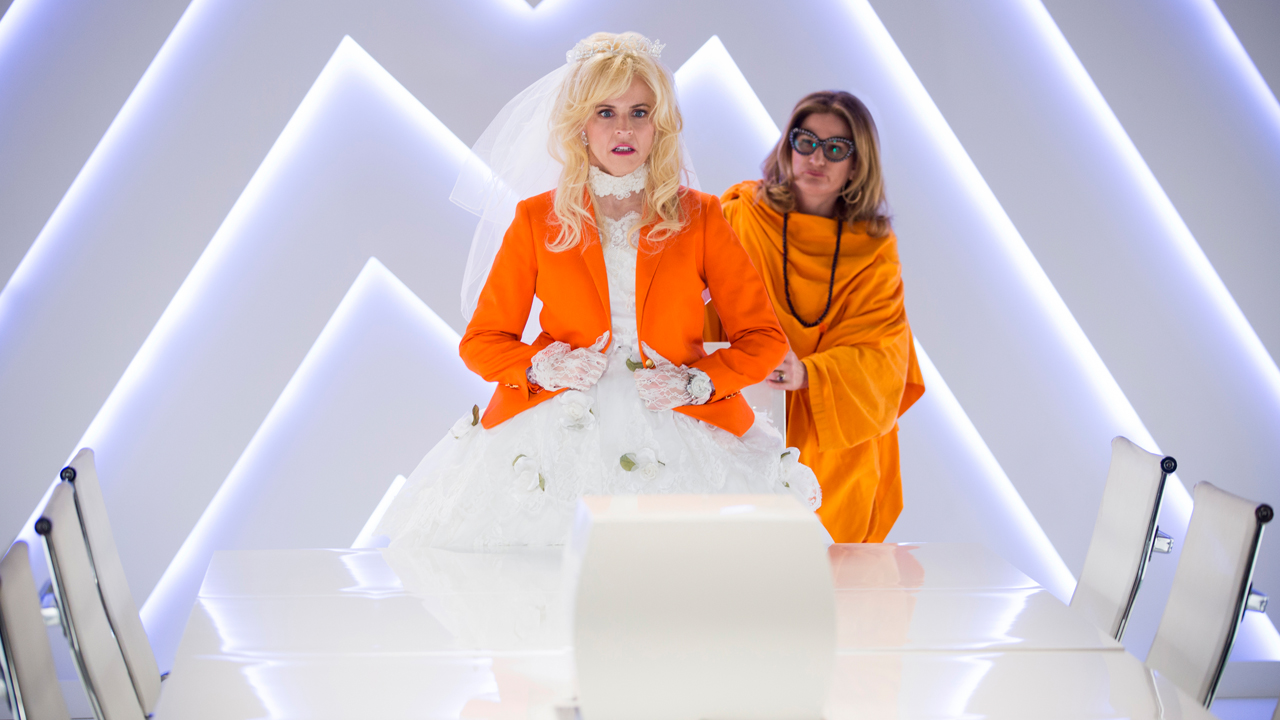
Regardless of my anthopomorphised mourning, the exact reasons for the show's cancellation haven't been made clear. Netflix never gives out viewing figures, but based on the lack of conversation I heard about Lady Dynamite (at least in the UK), I'd guess they weren't colossal. Though at the same time, Bamford has mentioned the demands of the shooting schedule providing some health challenges (albeit while still sounding upbeat about the possibility of a third season). We might never know the real reason.
If it was purely about viewing figures, it would also be ironic that Netflix - the streaming service that built much of its early kudos on its revival of Hurwitz’ previous show, at a time when no traditional TV station would touch it - has now canned the producer’s latest and greatest. It would be ironic and more than a bit painful, because in that case, the cancellation of Lady Dynamite possibly represents the end of the dream of Netflix as the crusading safety-net for good, underappreciated TV. The streaming service certainly seems to be hitting a bit of a hangover period right now, and potentially has a few questions to ask of itself regarding sustainability.
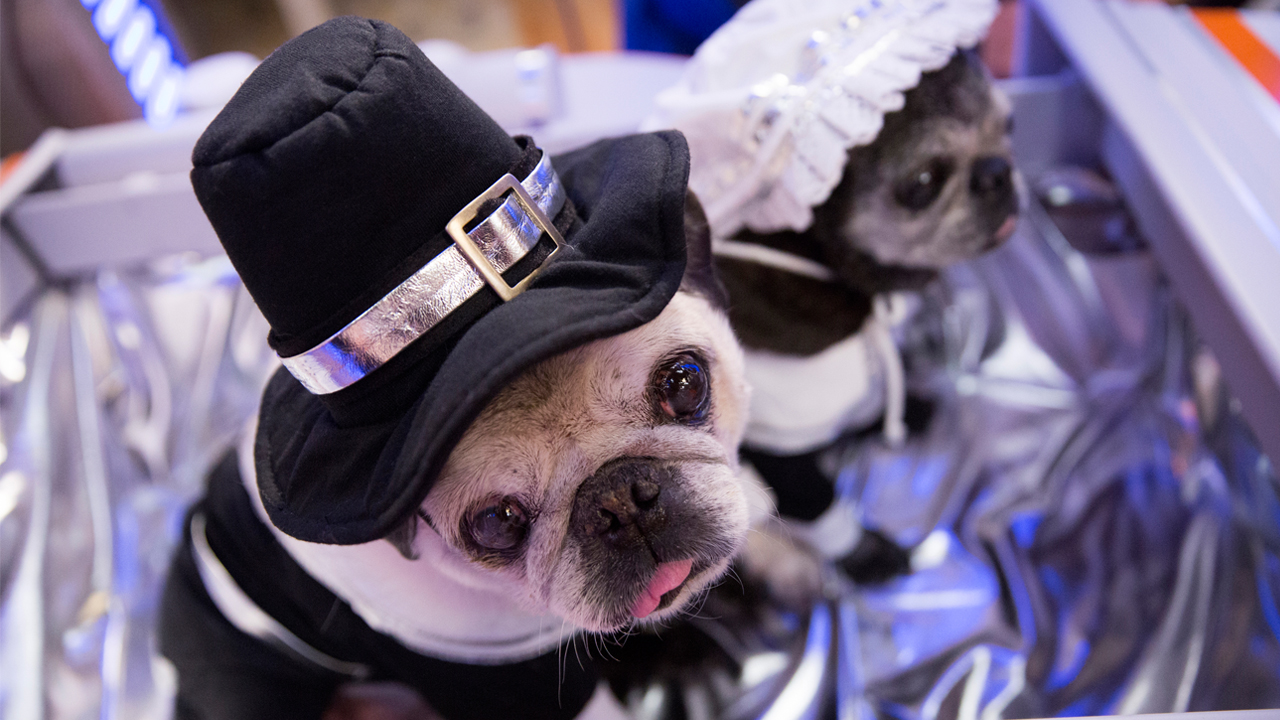
Though at the same time, that a show as weird, deceptively profound, and flagrantly personal as Lady Dynamite got made at all, let alone made it to two seasons, is rather a brilliant miracle. In another time, in a previous era, it almost definitely wouldn’t have. But it exists. We’ve made progress and, as the show itself professes, in a world where there is no end goal, maybe constant progress is more than enough.
Now just do me a favour and watch Lady Dynamite this week. You probably haven’t, and if that's the case, then and you have two whole seasons of wonderment to get through. I don’t blame you any more, even though it is your fault (look, I said it’s a process, I’m working on it). Just get it watched. We can discuss the talking pugs later in the week. Because trust me, you’ll definitely want to discuss the talking pugs.
